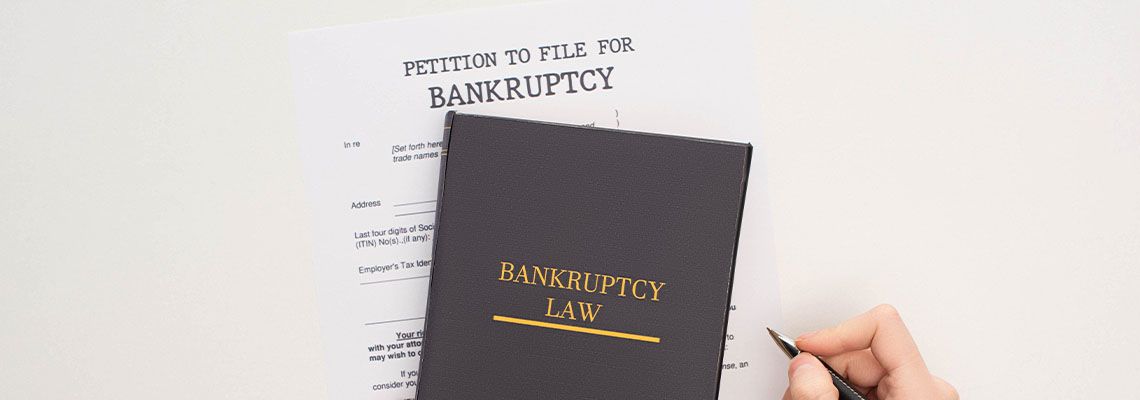
Will I Lose My Retirement Accounts If I File for Bankruptcy?
The idea of facing bankruptcy can lead to overwhelming feelings. It can be challenging to figure out what to do amid uncertain financial circumstances. In California, more than 39,000 people filed for bankruptcy in 2021. That figure makes California the state with the most bankruptcy filings in the nation.
At The Orantes Law Firm, we believe in helping our clients overcome bankruptcy. Our knowledgeable bankruptcy attorney provides the best legal counsel to help our clients look toward a brighter future. We proudly help people in the cities of Los Angeles and Irvine, California, get the legal representation they deserve.
Retirement Accounts Protected from Bankruptcy in California
In California, retirement accounts are generally protected in bankruptcy proceedings. This situation means that these accounts are typically exempt from the bankruptcy estate and cannot be used to pay off the debts the filer owes.
The following are some of the retirement accounts that are protected in bankruptcy in California:
401(k) and 403(b) Plans
These are employer-sponsored retirement plans that are typically protected in bankruptcy proceedings.
Traditional and Roth IRAs
Individual retirement accounts (IRAs) are generally protected in bankruptcy up to a certain amount. In California, IRAs are protected up to $1,362,800 per person, subject to adjustment every three years.
Pension Plans
Pensions provided by an employer or the government are generally protected in bankruptcy proceedings.
Profit-sharing plans
These employer-sponsored plans allow employees to share in the company’s profits. They are generally protected in bankruptcy.
It is important to note that the specific rules and exemptions related to retirement accounts in bankruptcy can vary depending on the type of bankruptcy filing and the specific circumstances of the filer. It is advisable to seek the advice of a bankruptcy attorney to understand better how bankruptcy may impact retirement accounts and what protections may be available.
Situations in Which Retirement Accounts May Not Be Protected in California
There are some situations in which retirement accounts may not be fully protected. Here are some situations in which retirement accounts may not be protected in California:
Non-exempt Contributions
Suppose the debtor made contributions to their retirement account that exceed the exempt amount. Those excess funds may not be protected in bankruptcy, such as with Roth IRA accounts.
Fraudulent Conduct
Retirement accounts may not be protected if the debtor engages in fraudulent conduct, such as making false statements on loan or credit card applications.
Early Withdrawals
If the debtor took an early withdrawal from their retirement account, those funds might not be protected in bankruptcy.
Co-mingling of Funds
If the debtor co-mingled retirement funds with non-retirement funds, it may be difficult to determine what portion of the funds are protected in bankruptcy.
Divorce or Legal Separation
Retirement accounts may be subject to division as part of a divorce or legal separation, which could impact the protections offered in bankruptcy.
Retirement Accounts Paid as Income and Bankruptcy in California
Retirement benefits being paid as income are generally considered part of a filer’s disposable income in a bankruptcy proceeding in California. This condition means that the income from retirement benefits may be used to pay off debts the filer owes.
In California, bankruptcy filers must undergo a “means test” to determine if they are eligible for Chapter 7 bankruptcy, which allows for the discharge of certain debts. The means test involves comparing the filer’s income to the median income for a household of the same size in California. If the filer’s income is below the median income, they may be eligible for Chapter 7 bankruptcy. However, if the filer’s income exceeds the median income, they may be required to file for Chapter 13 bankruptcy, which involves the creation of a repayment plan to pay off debts over a period of three to five years.
In a Chapter 13 bankruptcy, retirement benefits that are being paid as income may be included in the filer’s disposable income and used to pay off debts under the repayment plan. However, some types of retirement benefits may be exempt from inclusion in the filer’s disposable income. For example, Social Security benefits and certain types of public employee retirement benefits are generally exempt from inclusion in the disposable income calculation.
Get the Support of a Bankruptcy Attorney
At The Orantes Law Firm, we stand by our clients. We work hard to protect their rights during bankruptcy proceedings. Don’t face bankruptcy alone. Contact our reliable bankruptcy attorney today for dependable legal assistance. We proudly serve clients in Los Angeles and Irvine, California.
